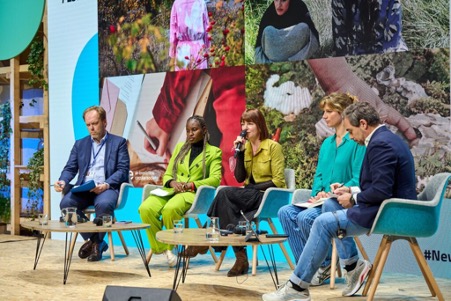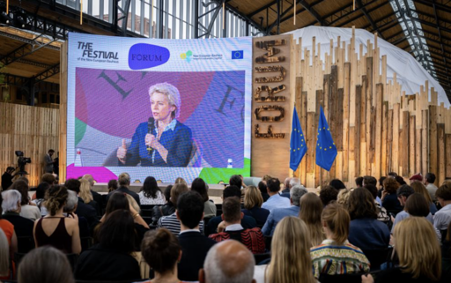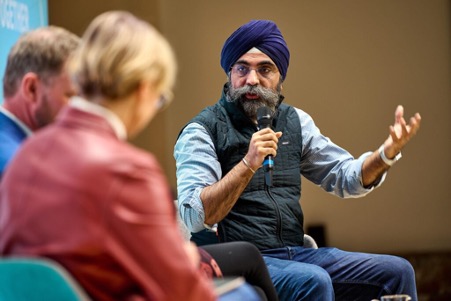Being at the New European Bauhaus Festival 2024, is a dynamic and touching experience. Set at the spectacular Art & History Museum in Brussels, holding a vibrant space for policy-makers, regenerative farmers, artists, community builders and many more to interact, share and explore. As the New European Bauhaus describe the movement: Beautiful, sustainable, together.
NXT was invited to share our work with the Garden Caretaker, presented by Artistic leader Madeleine Kate McGowan. The panel entitled Earth for all, but how? was framed by the historic Club of Rome and their newly released book Earth for All. The Club of Rome is a platform of diverse thought leaders who identify holistic solutions to complex global issues and promote policy initiatives and action to enable humanity to emerge from multiple planetary emergencies. They are commonly known for their historic report ‘Limits to Growth’. The panel reflected this topic from an activist, regulatory, financial and cultural perspective, represented by Founder of Fridays for Future Uganda, Hilda Nakabuye, Founder of Mission Value, Maja Göpel, and Kurt Vandenberghe, Director General for Climate Action the European Commission. All moderated by Ricardo Borges de Castro, European Policy Centre Senior Advisor, and with a video introduction by Co-president of the Club of Rome, Sandrine Dixson-Decléve.

Photo credit: EU | New European Bauhaus
In a time of geo-political destabilisation, an upcoming EU election and multiple crises, how do we continually argue and illustrate the importance of art, culture and inter-sectional experiments. In NXT we hold art and hybrid projects as a crucial aspect to our work. New cognitive research shows, that to be able to solve complex wicked problems, we must approach the issues from a non-binary mind-set. This mindset is stimulated by culture and the arts, which underlines the importance of aesthetic experience.
Pireeni Sundaralingam who is a brain activist educated at Oxford, and dedicated to using the latest neuroscience to boost human resilience, innovation, and decision-making, argues in her newest work, that the human brain becomes binary when interacting with for example social media and smartphones, but on the contrary becomes much more nuanced and flexible when in an aesthetic experience. Art primes the mind to be able to solve complex issues. All arguments to prioritise the arts in times of crises.


Top: Ursula von der Layen, the President of the European Commission. // Bottom: Indy Johar, CEO DarkMatterLAB and a part of the DESIRE project // Photo credit: EU | New European Bauhaus